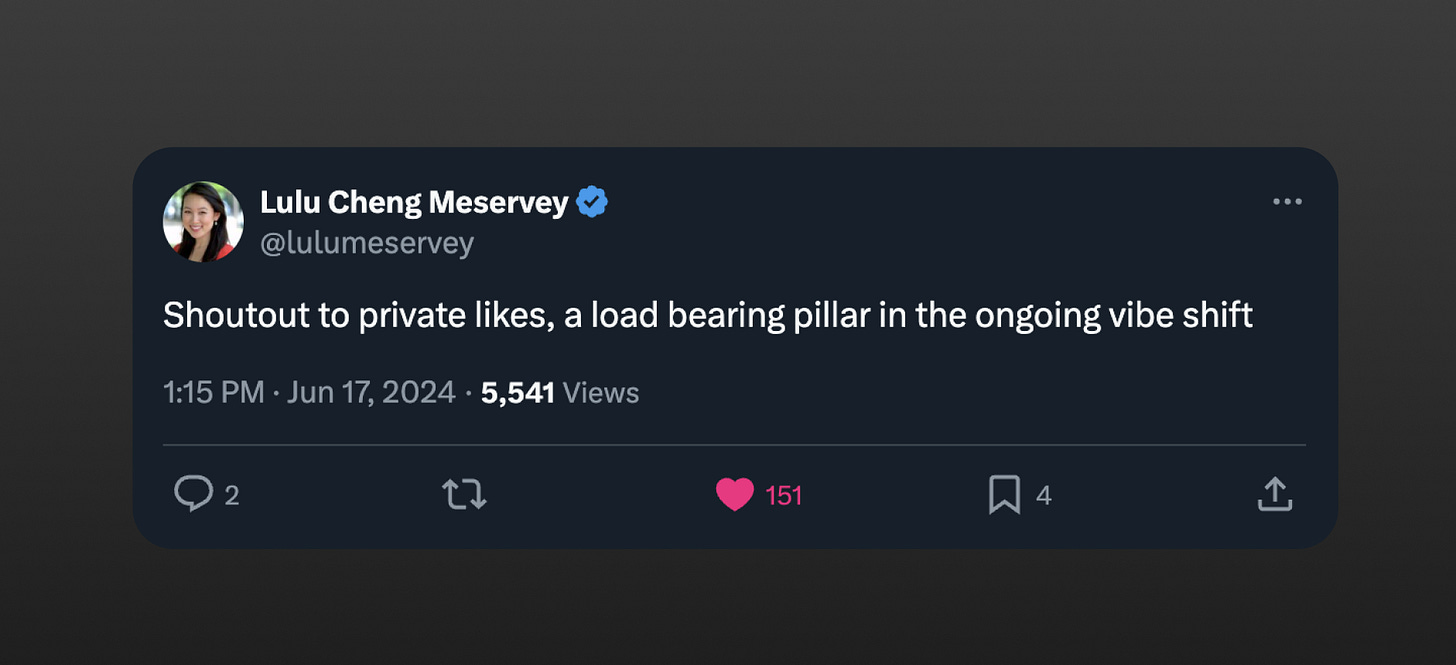A silent majority just got a huge mic on twitter

Last week, Twitter released a new feature that had many scratching their heads. They disabled public likes for all ~360 million users.
It’s subtle but I don’t think people understand the impact this could have on the app at this scale. Some thoughts on the good and bad of private likes, but first some context.
Anyone who’s been on Twitter for a while has seen it go through periods of collective mania.
One of those periods came in 2020 when the pandemic was in full swing and it felt like the world was ending. In this environment, the most extreme voices took over on Twitter and the outcome was one where people were afraid to say anything that went against an emergent orthodoxy. Those who did often lost friendships and jobs. (You may have already memory holed it but, if you’re in doubt or need a refresher, read what it was like to live through this era at the nytimes in Nellie Bowles's book, The Morning After the Revolution.)
At the peak of the mania, there was one thing that people did to attempt to regain some sanity. Instead of tweeting about some polarizing issue, they would create a Twitter poll. Because Twitter polls are anonymous, you tended to get more authentic replies. With a poll, you can take a position that seemed super popular among an influential clique (like whether we should abolish the police), make a poll, then watch that position get obliterated.
The revealed preference from this era is that many people wanted to call bullshit but didn’t want to tap a button on their phone and then have their lives destroyed.
With one code push, Twitter just made every fave on twitter quasi anonymous in a similar way to twitter polls. I see two outcomes for this, both of which are likely to happen at the same time.
Outcome 1:
If faves are private, a silent majority can now enter the chat in a way that it hasn’t before. The algo that powers your feed is going to get a ton of new data from people who are much more honest about what they like. All of this could make room for a more centrist or moderating group of users to gain distribution. I know some who have already been getting more likes from groups of users who didn’t usually like their work.
Outcome 2:
The fringes of the left and right could tilt even further and rage bait could increase. If there’s no social cost to faving a tweet you can let it rip. You can fave garbage tweets that confirm all your priors and the only thing tethering you (or anyone) to base reality is community notes.
It’s too early to tell but I’m hopeful we get more of the first outcome. If we’ve learned anything about the past 10 years on these platforms, it’s that the lunatic fringe on the left and right have disproportionate control of their cohorts. Particularly in times of heightened conflict or an election year.
It’s possible that we look back at this era of public likes as an anomaly. A seemingly innocent feature that, at scale, and over many years, drives people crazy and away from expressing what they really think.
Public likes have been pure cocaine for a hall monitor class that's had too much influence on the app.
The chilling effect is real.
We can do better.
